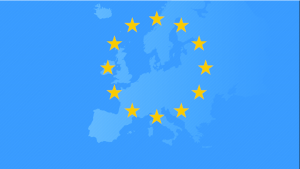A Message of Hope

Michael O’Flaherty
 We need a vision for Europe’s future, defined in terms of participation, non-discrimination, free choice, and pluralism, and where fundamental and human rightsAn essential part of open government includes protecting the sacred freedoms and rights of all citizens, including the most vulnerable groups, and holding those who violate human rights accountable. T... are used to realise that vision at the most local level.
We need a vision for Europe’s future, defined in terms of participation, non-discrimination, free choice, and pluralism, and where fundamental and human rightsAn essential part of open government includes protecting the sacred freedoms and rights of all citizens, including the most vulnerable groups, and holding those who violate human rights accountable. T... are used to realise that vision at the most local level.
In the run-up to the crucial May 2019 electionsImproving transparency in elections and maintaining the independence of electoral commissions is vital for promoting trust in the electoral system, preventing electoral fraud, and upholding the democr... More for the European Parliament, what we have ‘always’ taken for granted – liberal democracy, respect for universal human rights, and the rule of law – no longer remains uncontested, while their defence increasingly resembles a retreating rear-guard action. Collective memories of the horrors unleashed by totalitarian regimes upon Europe fade, or, worse, are transformed into a nostalgia for a glorified utopian past.
Ten years have passed from the greatest economic crisis since the Great Depression which triggered an unprecedented crisis of democratic legitimacy. In some European countries, this led to electoral gains for populist, even extremist,[i] parties which challenge the very essence of liberal democracy, some speaking openly of a new “illiberal state” to best protect the interest of the “nation”.[ii]
Much evidence has accumulated during that time pointing to the dangerously rapid erosion of the post–war institutional architecture which ensured peace and democratic stability in Europe: only last year, the report of the Bertelsmann Stiftung on the Sustainable Governance Indicators suggests that in the EU “the model of liberal democracy is subject to growing pressure – in some countries this means that even central democratic and constitutional standards such as media freedoms are already severely damaged or undermined”.[iii] The FRA’s[iv] own survey work over the past few years highlights the persisting plight of large shares of the diverse migrant or indigenous minorities living in the EU, in particular Roma, Jews, Muslims or LGBTI people, as well as the critical challenges facing civil society organisations working to protect and promote human rights.[v]
Mainstream political parties reacted with surprise and annoyance. Many tried to lure back voters by adopting a harder stance on migration and security (both core citizens’ concern across the EU)[vi]; others responded to economic grievances through job creation, better wages, pension security, etc. The European Commission, guardian of the EU’s Treaties and its Charter of Fundamental Rights, pursued a precarious balance: they responded to popular concerns about security and migration whilst trying to reinforce social protection and improving rules on working conditions through legal measures under the non-legally binding ‘new European Social Rights Pillar’. This initiative tries to counteract the consequences of the EU’s efforts after the economic crisis to maintain fiscal discipline, necessary for the survival of the EU’s common currency – a core aspect of European integration. It also has the potential to reduce persisting inequalities within and between Member States.
The Commission’s suggested policy responses, if effectively and swiftly implemented, could resonate positively with many. And yet, others, mostly from low and middle-income groups,[vii] could retain their societal pessimism, “an additional and possibly overarching characteristic of populist radical right voters”[viii] if they continue to feel and fear that they and their families continue to lose out when others are gaining.
What to do? We need a vision of democracy that builds on the wisdom born out of past experience to describe a future where the potential of modern technology is used to both improve material well-being and enhance citizens’ participation in decision making, thus serving democracy; where education does not merely transmit knowledge, but serves to raise citizens, women and men respectful of each other, thus promoting human rights; where the operation of justice makes everyone feel, in the words of Hannah Arendt, to have a “right to have rights”, thus building confidence in the rule of law.[ix]
Such a vision was articulated by the over 700 participants of the Fundamental Rights Forum organised by FRA last September. A vision for Europe’s future, defined in terms of participation, non-discrimination, free choice, and pluralism, and where fundamental and human rights are used to realise that vision at the most local level. A vision for a democracy that redistributes “the power to speak to the public, so that the arguments and positions of all the people are taken into account in public decisions and in establishing the rules, laws, and institutions.” [x]
This is a resounding message of hope, matched with an urgency to make use of the existing tools and mechanisms that governments have to address threats to democracy and reinvigorate the notion of all human rights for all. They have already committed to achieving this by the end of the next decade in the global plan of action, Agenda 2030, and its 17 sustainable development goalsOGP countries are experimenting with open government innovations to accelerate progress on the Sustainable Development Goals, particularly SDG 16+ which includes peaceful, just and inclusive societies.... This will require globally, in a European, and in every national context the development of unprecedented levels of synergy and cooperation. This will fuse the productive energies of every citizen, every community and organisation, every level of government to deliver what can transform nostalgia – for a chimeric past – to vigorous hope for a better future.
[i] For example, the ‘Popular Association – Golden Dawn’ a political party represented in the Greek Parliament; its leader and several members are currently on trial for forming a criminal organization (Article 187 par. 1 Greek Criminal Code)
[ii] Prime Minister Viktor Orbán, speech at the 25th Bálványos Summer Free University and Student Camp, July 30, 2014, available at http://www.kormany.hu/en/the-prime-minister/the-prime-minister-s-speeches/prime-minister-viktor-orban-s-speech-at-the-25th-balvanyos-summer-free-university-and-student-camp
[iii] Bertelsmann Stiftung (2018), Policy Performance and Governance Capacities in the OECD and EU Sustainable Governance Indicators 2018, p. 52
[iv] The European Union Agency for Fundamental Rights
[v] FRA (2018), Challenges facing civil society organisations working on human rights in the EU
[vi] Standard Eurobarometer 90, Autumn 2018
[vii] “Lakner, Christoph; Milanovic, Branko. 2013. Global Income Distribution: From the Fall of the Berlin Wall to the Great Recession. Policy Research Working Paper; No. 6719. World Bank, Washington, DC. https://openknowledge.worldbank.org/handle/10986/16935 License: CC BY 3.0 IGO
[viii] Eefje Steenvoorden & Eelco Harteveld (2018) The appeal of nostalgia: the influence of societal pessimism on support for populist radical right parties, West European Politics, 41:1, 28-52, DOI: 10.1080/01402382.2017.1334138
[ix] Hannah Arendt (1951), The origins of Totalitarianism, Harcourt, Inc., pp. 296-297
[x] Jérôme Creel, Éloi Laurent, Jacques Le Cacheux (editors), 2018, Report on the State of the European Union, Volume 5: The Euro at 20 and the Futures of Europe, p. 205 – OFCE, Sciences Po, Paris https://doi.org/10.1007/978-3-319-98364-6
No comments yet
Related Content

Do We Trust Democracy? A Future Agenda for Europe
The European election of 2019 asked voters to choose between more or less Europe, between inclusion and diversity or exclusion and nationalism, and between societies that are more open or…

Leave a Reply